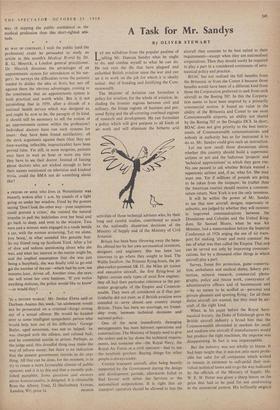BY WAY OF CONTRAST, I wish the public (and the
Dr. Meyrick discusses the advantages of an appointments system for attendances at his sur- gery; he surveys the difficulties (even the patients tended to dislike the idea at first), but sets off against them the obvious advantages, coming to the conclusion that an appointments system is both practical and worth while. But is it not astonishing that in 1959, after a decade of a national health service which was designed as, and ought by now to be, the paragdn of its kind, it should still be necessary to sell the notion of an appointments system within the profession? Individual doctors have run such systems for years: they have been found satisfactory; all the stock arguments against them (that they are time-wasting, inflexible, impracticable) have been proved false. Yet still, in most surgeries, patients may have to wait an hour or more any time they have to see their doctor.. Instead of fussing about doctors who are wicked enough to have their names mentioned on television and kindred trivia, could the BMA not do something about this? profession) could be persuaded to study an article in this month's MediCal World by Dr.
R. Ll. Meyrick, a London general practitioner.






































 Previous page
Previous page